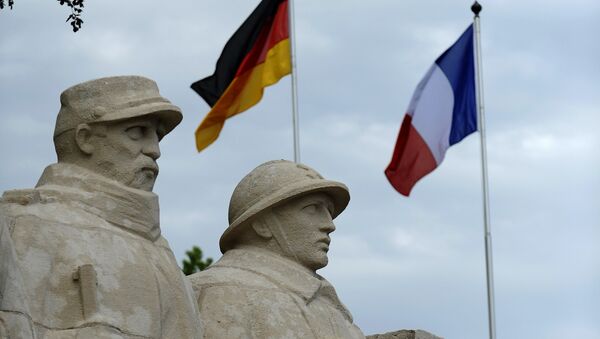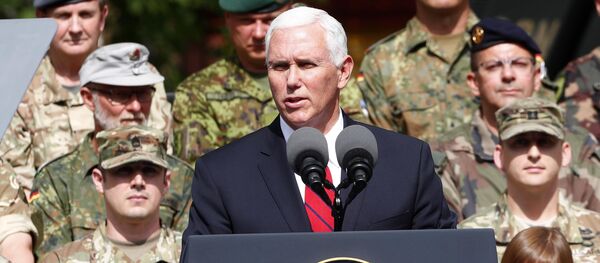The joint report from the EU's most powerful members describes a "long-term vision" that participating states develop the ability of their armed forces to fully execute military tasks, the German newspaper Frankfurter Allgemeine Sonntagszeitung, which has seen a copy of the document, reported on Sunday.
The new military capabilities will be developed "in addition to NATO, which will continue to be the cornerstone of the collective defense of its members," the report added.
The proposal was formulated after last month's bilateral defense council meeting, at which Berlin and Paris agreed upon conditions under which countries should participate in the defense pact. These include a commitment to increase defense spending to "approach" the two percent demanded by NATO and to invest 20 percent of military spending on research, development, and equipment acquisition.
France and Germany also propose that member states' armed forces undergo an annual assessment by the European Defense Agency, whose powers will be significantly strengthened.
"A lot of staff headquarters are discussing and thinking about these issues, but in practice not much is being done," he told Sputnik France.
"There are countries that unreservedly support NATO, who would prefer to maintain loyalty to it – I would not say that they are under its control, but they have a certain will to remain close to the United States instead of participating in [defense] cooperation of a purely European character."
"At the moment, much is being said about the new position of French diplomacy. There a lot of words but not a lot of action … however, it could be that maybe now we can really make something happen in practice," Brisset said, more optimistically.
Dr. Caroline Galacteros, a political analyst and colonel in the French Army's operational reserve, told Sputnik France that the proposal is a timely move toward more defense autonomy from the US.
"This is a good initiative since it is being proposed at a time when the situation at both the European and international level is conducive to such initiatives. American foreign policy, US policy towards Europe is not easy to understand…The time has come for Europe should show that it has its own legitimacy with regard to strategic autonomy," Galacteros said.
"I am not privy to the details of the negotiations, but I think that there will probably be a consolidation of the costs of conducting external operations which today fall mainly on the shoulders of France despite the fact that such operations concerns the defense of all Europeans. Our operations in the Sahel are carried out with too little support from our European partners."
"We are still full members of the European Union and we will resist any attempt to unnecessarily duplicate NATO structures. We remain committed to the security of the European continent," the UK Ministry of Defense stated in September last year.
Following the Brexit vote, France and Germany presented the Visegrad group of countries with a plan for a new-look European superstate including a "European Security Compact" dealing with all aspects of security and defense at the European level.
In February, Defense Minister Roberta Pinotti said that the EU should enhance its defense co-operation, independent of NATO. She suggested a "two-speed" Europe in defense as well as economic matters, including the implementation of a "Defense Schengen" that would strengthen cooperation between Italy, France, Germany and Spain.





